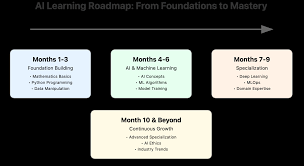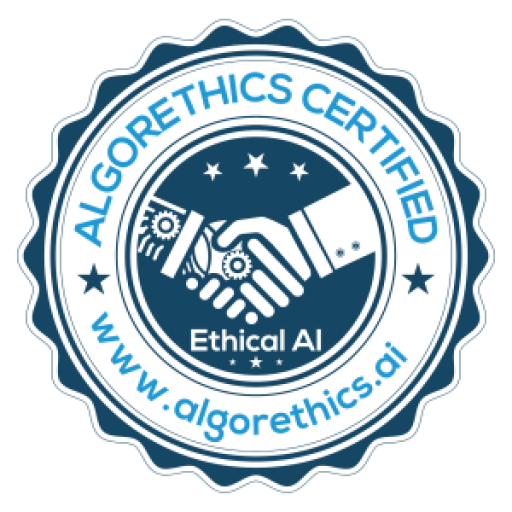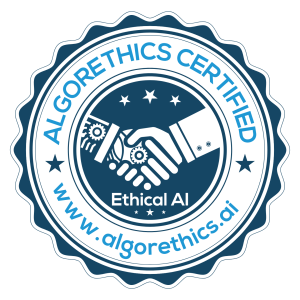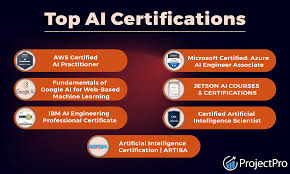In today’s fast-moving tech world, launching an AI-driven product is no longer just about innovation and performance—it’s about trust. As governments, investors, and customers become more aware of the risks and responsibilities tied to artificial intelligence, AI project certification is becoming an essential step for startups looking to build credibility and stay competitive. Whether you’re building a chatbot, a recommendation engine, or training your own large language model (LLM), ethical considerations must be front and center.
In this guide, we’ll walk you through what it takes to get your AI project ethically certified, and how to align your technology with evolving standards in startup AI ethics.
Why Ethical Certification Matters
As AI technologies like ethical LLMs become more integrated into everyday life, ethical lapses can lead to serious consequences: reputational damage, legal penalties, and loss of public trust. Ethical certification isn’t just a badge—it signals to users and stakeholders that your startup is serious about safety, fairness, transparency, and accountability.
Key benefits include:
Investor confidence: Ethical certification can help attract responsible capital.
Regulatory readiness: Certification prepares your AI for upcoming regulations like the EU AI Act.
User trust: A visible commitment to ethics can set you apart in crowded markets.
Step 1: Understand the Key Ethical Principles
Before you seek AI project certification, you need a solid grounding in the core principles of startup AI ethics, which include:
Transparency: Can users understand how your AI makes decisions?
Fairness: Does your model avoid bias against protected groups?
Accountability: Who is responsible when your AI goes wrong?
Privacy: Are you collecting and processing data ethically and securely?
Safety: Is your AI safe to deploy in real-world conditions?
These principles aren’t just theoretical—they’re often built into certification criteria and audit frameworks.
Step 2: Choose the Right Certification Framework
Not all certifications are created equal. Depending on your market and use case, you might consider:
IEEE CertifAIEd: A globally recognized program focused on ethical AI system development.
AI Ethics Label by ForHumanity: An independent nonprofit label aligned with international regulations.
B Corp Certification (for ethical businesses): While broader than AI, it’s increasingly relevant for socially conscious tech startups.
Each framework has its own process and standards, so take time to review which one fits your goals.
Step 3: Build Ethical Compliance into Your Development Workflow
Ethical LLMs and AI systems aren’t built by accident—they’re the result of intentional design and continuous monitoring. Here’s how to start:
Conduct impact assessments: Identify who your AI could affect, and how.
Use diverse training data: Prevent bias by representing a broad spectrum of users.
Audit your algorithms: Regularly test for unintended outcomes.
Document decisions: Keep records of ethical reviews and design choices.
Pro tip: Ethical review shouldn’t be a one-time thing. Build it into your product lifecycle from day one.
Step 4: Prepare for the Audit
Most certification bodies require you to submit evidence of compliance—this can include:
Documentation of your data collection and training process
Bias and performance testing reports
Governance policies (e.g., your approach to handling user complaints)
Security protocols for sensitive data
You may also be required to undergo interviews or technical evaluations with an external auditor.
Step 5: Keep Ethics Ongoing
Getting your AI project certified isn’t the end—it’s the beginning of a more responsible way of working. As your AI evolves, so should your ethics strategy. Make sure to:
Schedule regular re-certifications or reviews
Stay up to date with new laws and standards
Engage users and stakeholders for feedback
Ethics is a moving target. Staying proactive will keep you compliant—and competitive.
Final Thoughts
For startups navigating the world of artificial intelligence, AI project certification isn’t just about compliance—it’s a smart business move. By embedding ethical principles into your product design and getting certified, you’re laying a strong foundation for long-term success.
Whether you’re working on next-gen search tools, generative apps, or ethical LLMs, putting startup AI ethics first is no longer optional—it’s essential.
If you need help preparing for certification or choosing the right framework for your AI project, feel free to ask!







